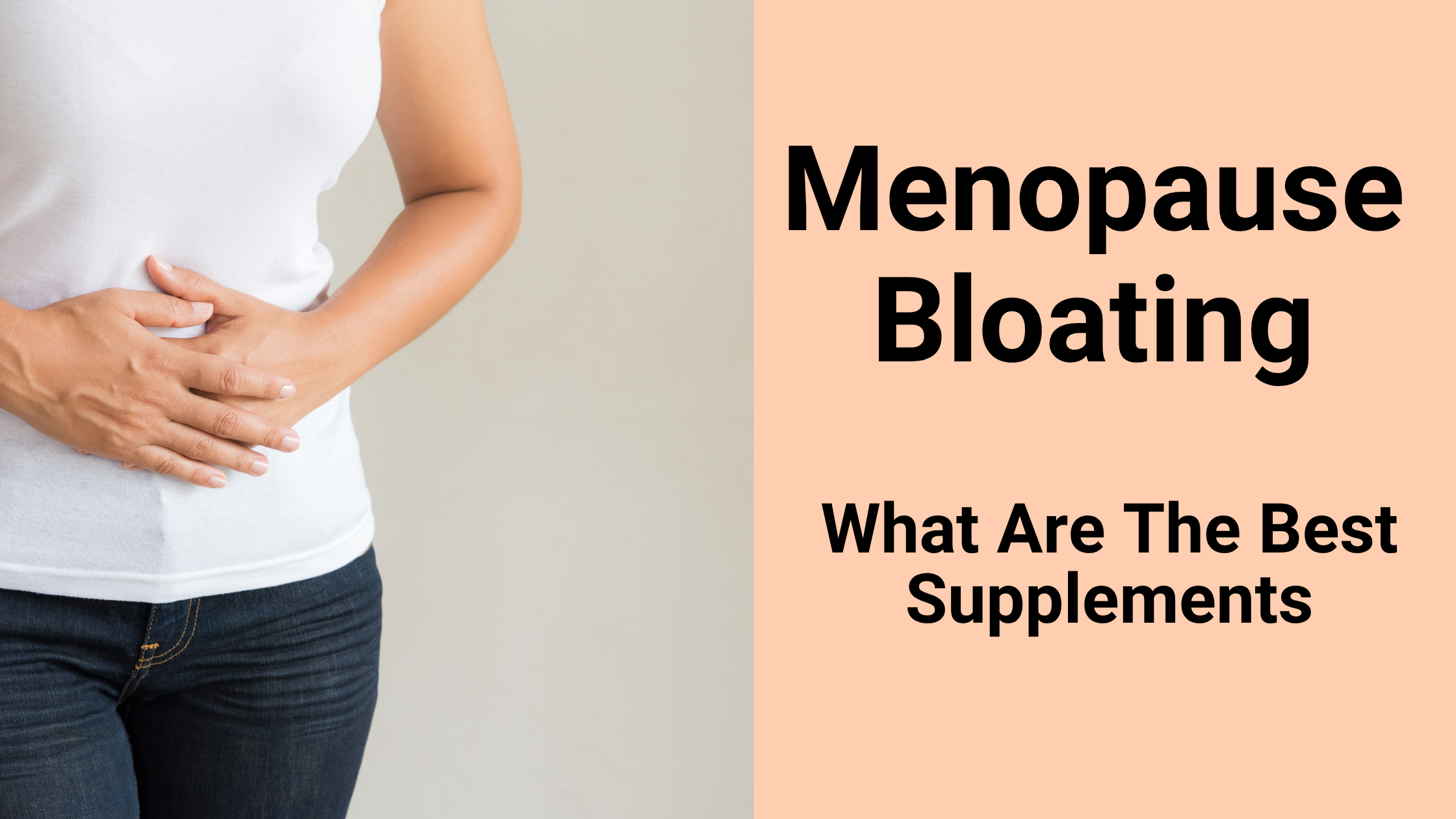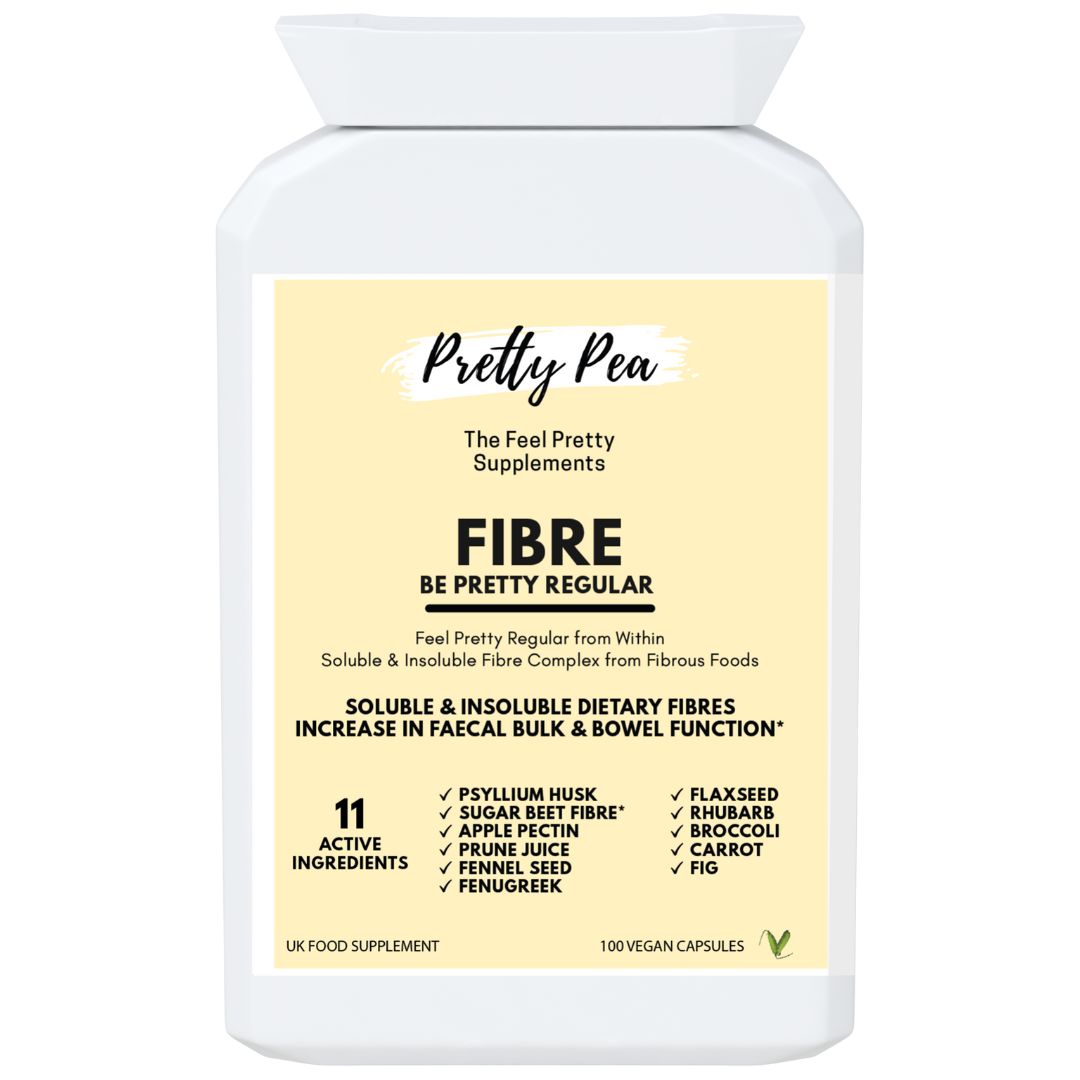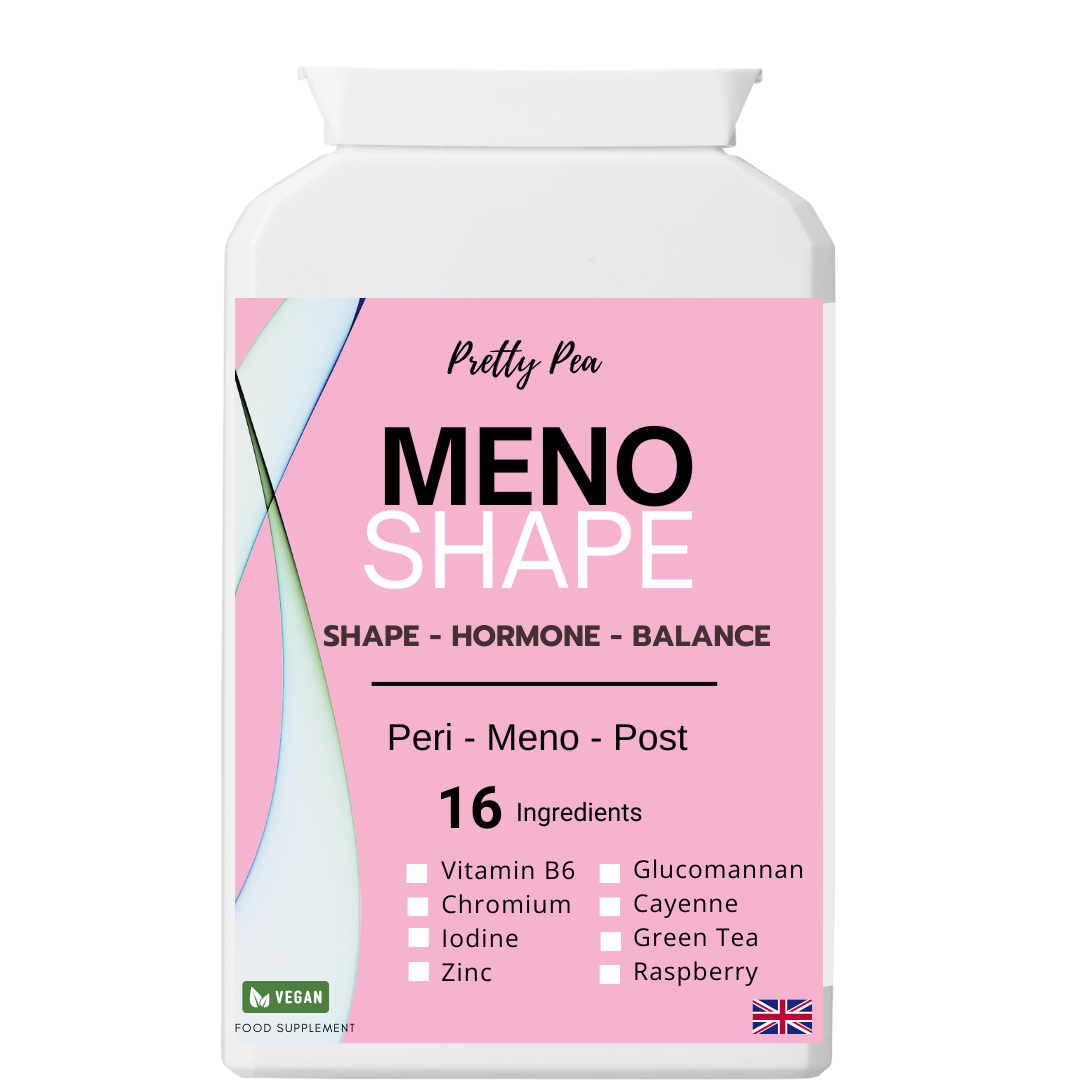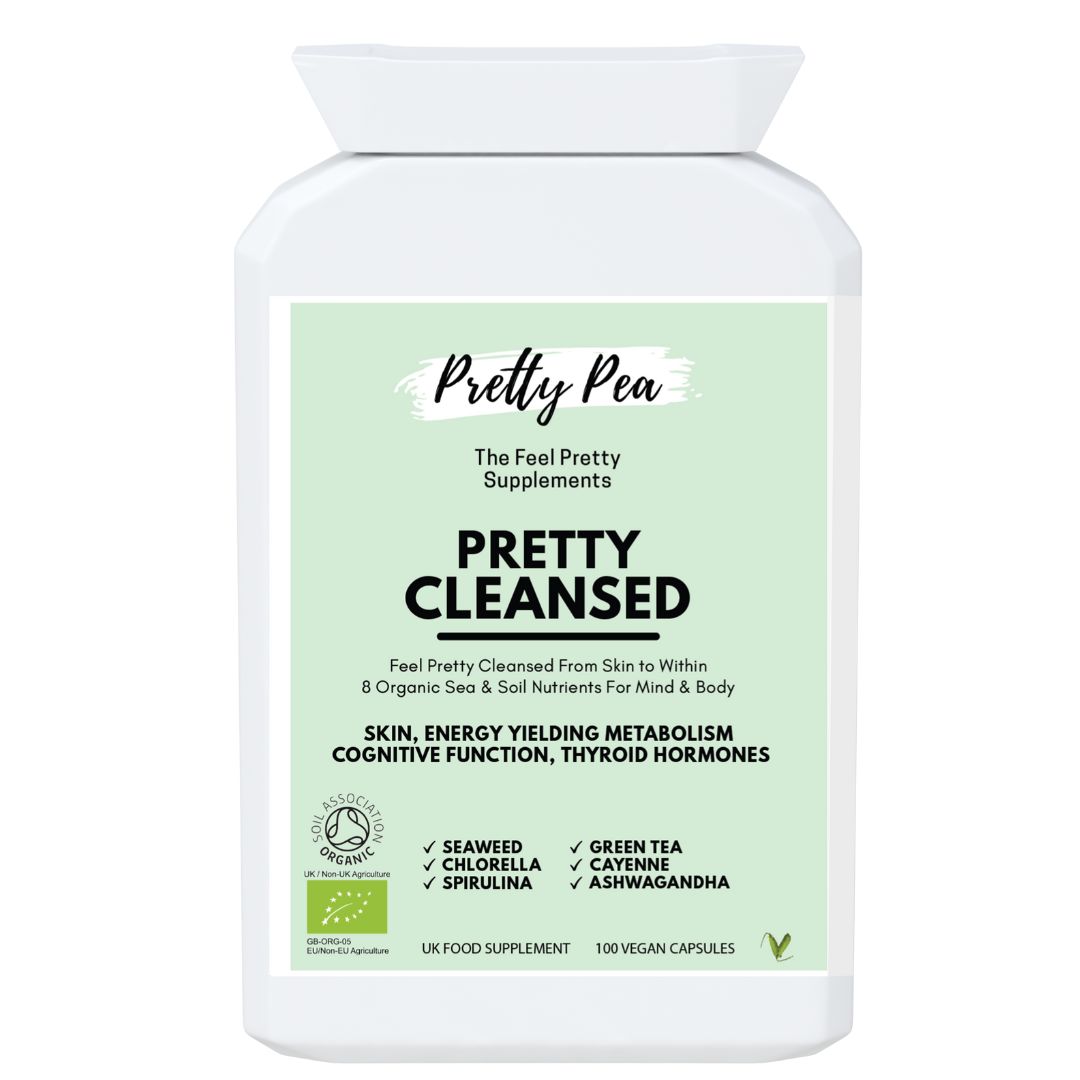- The Link Between Menopause and Bloating
- What Causes Bloating
- Hormonal Menopause Bloating
- The Science Behind Menopause-Related Bloating
- Common Symptoms of Menopause Bloating
- The Role of Supplements in Alleviating Bloating
- Types of Supplement for Menopause Bloating
- How to Choose the Right Supplement for Menopause Bloating
- What Else Matters
- Potential Side Effects and Precautions
- Expert Recommendations and Testimonials
- Finding Relief: Start Your Supplement for Menopause Bloating
Bloating is an uncomfortable condition that affects as many as 75% of women at various stages of their lives. This is particularly so during hormonal transitions such as menstruation, pregnancy and menopause. As hormone levels fluctuate, the body undergoes numerous changes, leading to that frustrating feeling of fullness and discomfort. But don’t let menopause bloating disrupt your life. You can get relief from targeted supplement for menopause bloating, and regain control over your body and well-being.
In this article, we’ll explore the top supplements specifically designed to ease bloating during menopause, providing insights into how each can help reduce discomfort and promote digestive health. Say goodbye to the days of feeling bloated and hello to feeling your best again.
The Link Between Menopause and Bloating
Menopause marks a significant transition in a woman’s life, characterized by the end of menstrual cycles and a myriad of hormonal changes. This phase typically begins between the ages of 45 and 55 on average and can bring about various physical and emotional symptoms.
One of the most common and bothersome symptoms experienced during menopause is bloating and the menopause belly. This uncomfortable sensation of fullness and swelling in the abdomen can significantly impact a woman’s quality of life, making it essential to understand its causes and find effective ways to manage it.
The hormonal fluctuations associated with menopause, particularly the decline in estrogen and progesterone levels, play a crucial role in the onset of bloating. Estrogen is known to affect the body’s water retention, and as its levels drop, the tendency to retain water increases, leading to bloating.
Additionally, the imbalance between estrogen and progesterone can slow down the digestive process, causing gas and abdominal discomfort. Understanding these underlying mechanisms is key to addressing and alleviating bloating during menopause.
Bloating during menopause is not just a physical issue; it can also take a toll on mental well-being. The discomfort and self-consciousness associated with a bloated abdomen can lead to decreased self-esteem and increased stress levels.
What Causes Bloating
When considering the best supplement for menopause bloating it’s important to understand why women bloat, as despite its prevalence, bloating remains misunderstood and often dismissed.
The pathophysiology of bloating, remains ambiguous and a number of mechanisms are suggested, these include:
excessive intestinal gas accumulation
small intestinal bacterial overgrowth
abnormal gut microbiota
altered gut motility
impaired gas handling
fluid retention
abnormal abdominal-diaphragmatic reflexes
visceral hypersensitivity
food intolerance
malabsorption of carbohydrates
constipation and hard stools
increased in lumbar lordosis
role of sex hormones
and psychological factors
In addition to this list, as the body ages the level of digestive enzymes in the body can decrease – enzymes help break down food after we eat. Digestive enzymes reduce with age and can also be impacted in times of illness and stress.
As you can see it’s quite a list, with sex hormones just one factor, but a significant factor:
A 2011 study related gastrointestinal orders to ovary function and noted that the prevalence of visceral pain disorders such as irritable bowel syndrome (IBS), gastroesophageal reflux disease, gallbladder and biliary tract diseases are significantly higher in women.
The study reported that symptoms such as nausea, vomiting, abdominal pain, distension, satiety, bloating, diarrhoea or constipation, frequently appears in relation with pregnancy, the luteal phase of the menstrual cycle and during perimenopause and menopause.
- Menstruation: Hormonal changes during the luteal phase can cause fluid retention and bloating stomach.
- Pregnancy: The growing uterus and hormonal shifts can slow digestion, leading to bloating.
- Menopause: Reduced estrogen levels can impact gut motility and increase gas production.
Certain female specific medical conditions can also cause bloating stomach, including endometriosis and ovarian cysts, so if you have persistent bloating it’s important to rule these conditions out with your healthcare provider.
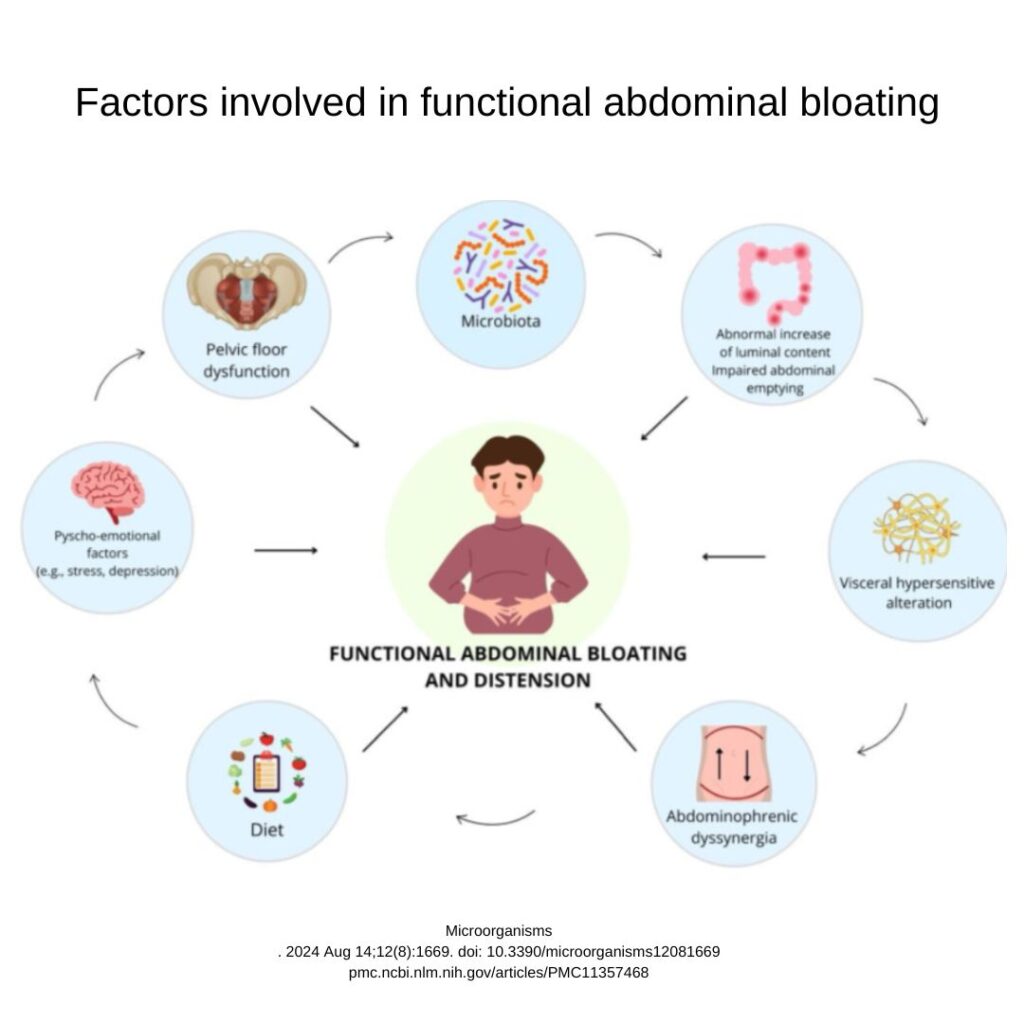
Hormonal Menopause Bloating
Estrogen and progesterone are not only involved in reproductive functions but also play a significant role in regulating various bodily processes, including digestion.
As estrogen levels decline, the gastrointestinal tract can become more sluggish, leading to slower transit times for food and increased gas production. This slowdown in digestion is a primary contributor to the bloating experienced by many menopausal women.
Moreover, the decrease in estrogen can affect the balance of gut bacteria, known as the microbiome. A healthy microbiome is essential for efficient digestion and nutrient absorption.
When estrogen levels drop, it can disrupt this delicate balance, potentially leading to an overgrowth of harmful bacteria (see list above) and further exacerbating bloating and digestive discomfort.
Understanding the interplay between hormones and gut health is crucial for identifying effective strategies to manage menopause-related bloating and choosing the best supplement for menopause bloating.
Another factor contributing to bloating during menopause is the increased sensitivity of the gastrointestinal tract. Hormonal changes can make the digestive system more reactive to certain foods, leading to food intolerances and sensitivities that were not present before menopause.
This heightened sensitivity can cause bloating, gas, and abdominal pain in response to specific dietary triggers. By recognizing and addressing these sensitivities, women can better manage their symptoms and improve their overall digestive health.
The Science Behind Menopause-Related Bloating
The intricate relationship between hormones and the digestive system becomes particularly evident during menopause.
The hormonal shifts that occur during menopause significantly influence gastrointestinal function. Estrogen and progesterone are integral to maintaining a healthy digestive system.
Estrogen helps regulate the production of bile, which is essential for digesting fats, while progesterone aids in muscle relaxation, including the muscles of the gastrointestinal tract. When these hormones decrease, digestive processes can become sluggish, leading to increased gas production and water retention.
Moreover, lower estrogen levels can affect the gut microbiome, the community of bacteria living in the intestines. A healthy balance of gut bacteria is crucial for efficient digestion and absorption of nutrients.
Disruptions in this balance can lead to increased fermentation of undigested food, producing excess gas and contributing to bloating. Understanding these physiological changes highlights the importance of supporting digestive health during menopause.
Another factor contributing to menopause-related bloating is the body’s tendency to retain fluid in response to declining estrogen levels. Estrogen influences the balance of sodium and water in the body. As estrogen levels drop, the body may hold onto more sodium, leading to fluid retention and a bloated feeling. This physiological response underscores the need for interventions that address both digestive health and fluid balance to effectively manage bloating during menopause.
FIBRE CAPSULES
High fibre pills derived from psyllium husk, flaxseed, sugar beet, prune juice, fig fruit, rhubarb, pectin, fenugreek and other naturally high fibre botanicals and foods. More than just roughage, these fibre pills contains cellulose, pectin, hemicellulose, lignin and gums.
Fibre Pills Ingredients: Psyllium Husk, Flaxseed, Sugar Beet Fibre, Fenugreek, Apple pectin, Rhubarb, Prune Juice, Broccoli, Carrot, Fig Fruit, Fennel Seed. Vegan, Dairy Free, Gluten Free. 100 capsules
Common Symptoms of Menopause Bloating
Menopause bloating can manifest in various ways, making it a multifaceted symptom that can be challenging to pinpoint. One of the most common signs is a noticeable swelling or distension of the abdomen, which can fluctuate throughout the day. This bloating is often accompanied by a sensation of tightness or fullness, which can be uncomfortable and sometimes painful. Women may find that their clothes fit more snugly around the waist, adding to the discomfort.
In addition to abdominal distension, other digestive symptoms often accompany menopause bloating. These can include increased gas, which may cause burping or flatulence, and changes in bowel habits, such as constipation or diarrhea. These symptoms can be exacerbated by certain foods and stress, making it essential to identify and manage triggers to reduce their impact.
Emotional and psychological symptoms can also accompany menopause bloating. The discomfort and physical changes can lead to feelings of self-consciousness, anxiety, and frustration. These emotional responses can create a cycle where stress exacerbates bloating, and bloating increases stress. Addressing both the physical and emotional aspects of menopause bloating is crucial for comprehensive relief.
While occasional bloating is normal, persistent or severe bloating may be a signal of hormonal changes or underlying health issues and should be investigated with a healthcare practitioner.
The Role of Supplements in Alleviating Bloating
Finding the right supplement for menopause bloating can play a vital role in managing menopause bloating by addressing the underlying causes and providing targeted support.
Identifying patterns, triggers and root causes are important factors when selecting the right supplement for menopause bloating. The right supplements to help balance hormones, improve digestive health, and reduce fluid retention can provide a multi-pronged approach to alleviating symptoms.
One of the primary benefits of using a supplement for menopause bloating is their ability to provide targeted nutrients that may be lacking in the diet. For example, certain vitamins and minerals are essential for hormone regulation and digestive health.
Supplements can help fill these nutritional gaps, promoting better overall health and reducing the severity of bloating. Additionally, some supplements contain natural compounds that can directly address digestive issues, such as probiotics and digestive enzymes.
Another advantage of supplements is their convenience and ease of use. Unlike major lifestyle changes, which can be challenging to implement and maintain, taking a daily supplement is a simple and sustainable way to support health during menopause. By selecting high-quality, evidence-based supplements, women can effectively manage bloating and other menopausal symptoms with minimal disruption to their daily routines.
Types of Supplement for Menopause Bloating
Probiotics
Probiotics are beneficial bacteria that support a healthy gut microbiome. A balanced gut microbiome is crucial for optimal digestion and reducing bloating. Probiotics can help restore the natural balance of bacteria in the intestines, reducing the production of gas and improving overall digestive function. They are available in various forms, including capsules, powders, and fermented foods such as yogurt and kefir.
We recommend Pretty Pea Appetite Weight Control Fibre blend, a Psyllium Husk fibre blend of prebiotics and probiotics, plus digestive herbals peppermint, ginger, fennel, with gut protector L-Glutamine.
Fibre
Where bloating is accompanied by constipation this could be eased by increasing dietary fibre. If this is difficult to do so by diet alone then topping up with quality fibre supplements that include Psyllium Husk or Sugar Beet Fibre can be a convenient and effective solution.
Digestive Enzymes
Digestive enzymes assist in breaking down food into nutrients that the body can absorb. As hormone levels fluctuate during menopause, digestive efficiency can decrease, leading to incomplete digestion and increased gas production.
Many women find supplementing with Digestive Enzymes can be a useful addition when selecting the best supplement for menopause bloating. Supplementing with digestive enzymes can enhance the breakdown of proteins, fats, and carbohydrates, reducing bloating and discomfort. Common digestive enzymes include amylase, protease, and lipase.
Magnesium
Magnesium is a vital mineral that supports muscle relaxation and fluid balance in the body. It can help reduce bloating by preventing water retention and promoting regular bowel movements. Magnesium supplements are available in various forms, including magnesium citrate, which is particularly effective for alleviating constipation-related bloating. Including magnesium in your supplement regimen can provide significant relief from menopause bloating.
Vitamin B6
Vitamin B6 plays a crucial role in hormone regulation and fluid balance. It can help alleviate bloating by reducing water retention and supporting the production of neurotransmitters that regulate mood and stress. Taking a daily vitamin B6 supplement can help manage both physical and emotional symptoms of menopause.
We recommend Pretty Pea Meno Weight, with 10mg Vitamin B6, Glucomannan fibre and a whole host of other beneficial nutrients these clever capsules target the menopause belly from the inside out.
Meno Shape
Menopause tablets for weight loss. MENO is the all in one menopause supplements, targeting weight loss*, hormone regulation, energy levels and much more. 16 Active Ingredients combining traditional Eastern nutrients with science backed vitamins of the West to bring women an all in one menopause tablets for weight loss.
Fennel
Fennel is a natural herb known for its digestive benefits. It can help reduce bloating by relaxing the muscles of the gastrointestinal tract and promoting the expulsion of gas. Fennel supplements are available in various forms, including capsules, teas, and essential oils.
We recommended Pretty Pea Fibre Pills which include Fennel along with Fenugreek, Psyllium Husk, Fig, Prune Juice, Rhubarb, Pectin, Sugar Beet Fibre and more. Incorporating fennel into your daily routine can provide natural relief from bloating and improve overall digestive health.
How to Choose the Right Supplement for Menopause Bloating
Selecting the right supplements for menopause bloating involves considering your specific symptoms, health status, and preferences. It’s essential to choose high-quality supplements from reputable brands to ensure safety and efficacy and avoid supplements with unnecessary additives or fillers.
It’s also essential to start with a single supplement and monitor your body’s response before introducing additional products. This approach allows you to identify which supplements are most effective for your symptoms and reduces the risk of adverse reactions.
Keeping a record of bloating symptoms, including the type, frequency and duration of symptoms is important when considering the best supplement for menopause bloating.
In addition to hormonal changes, diet can also be a common factor and changing diet or lifestyle habits can be effective in easing symptoms.
Keeping a journal to track your symptoms and any changes can help you and your healthcare provider make informed decisions about your supplement regimen.
What Else Matters
In addition to using supplements, making lifestyle changes can significantly enhance your efforts to reduce menopause bloating. Dietary adjustments, such as reducing the intake of gas-producing foods, can help minimize bloating.
Common culprits include beans, cruciferous vegetables, carbonated drinks, and high-fat foods. Incorporating fibre rich foods, such as fruits, vegetables, and whole grains, can promote regular bowel movements and reduce bloating.
Staying hydrated is another crucial aspect of managing bloating. Drinking plenty of water helps flush out excess sodium and reduces water retention.
Aim to drink at least eight glasses of water a day, and consider limiting the consumption of caffeinated and alcoholic beverages, which can contribute to dehydration and bloating. Herbal teas, such as peppermint or chamomile, can provide additional digestive benefits.
Regular physical activity can also help reduce bloating by promoting healthy digestion and preventing constipation. Engage in exercises that you enjoy, such as walking, swimming, or yoga, for at least 30 minutes a day.
Physical activity can also help manage stress, which is a common trigger for bloating. Incorporating relaxation techniques, such as deep breathing, meditation, or mindfulness, can further support digestive health and reduce stress-related bloating.
Potential Side Effects and Precautions
While supplements can provide significant relief from menopause bloating, it’s essential to be aware of potential side effects and precautions. Some supplements may cause temporary gastrointestinal discomfort, such as gas or diarrhoea, especially when taken in high doses. Starting with a lower dose and gradually increasing, allowing your body time to acclimatise, can help minimize these side effects.
Certain supplements may interact with medications or other health conditions. For example, magnesium supplements can interact with certain heart medications or antibiotics, while vitamin B6 can affect the efficacy of anticonvulsant drugs. Always consult with a healthcare professional before starting any new supplement, particularly if you have underlying health conditions or are taking other medications.
Expert Recommendations and Testimonials
Insight can also be gained from testimonials from other women who have successfully found the right supplement for menopause bloating:
Josie has been taking Pretty Pea Meno Weight for 4 months and will be continuing as they have really helped her symptoms.
“After having a hysterectomy I really piled the weight especially around the stomach, I was also struggling with hot flushes mood swings and constant food cravings, I tried so many things the help, calorie counting and 1 full hour per day of treadmill and 7 different supplements per day. Nothing was having and real impact on my weight. I came across these and thought they were a little pricey but I’ll give them ago and I was so shocked that after the first week I had lost 2 pound and stopped craving food constantly. Now 4 months on I’m back to 9 stone and my bloaty stomach is gone. I’m no longer snacking all day/night because I’m not hungry after I’ve eaten my meals. I feel a lot calmer and I’m having less hot flushes too!
Needless to say that this is the only supplement I need to take now and I will continue on them. If you are having similar issues than I was then these are really worth a shot.”
Rachel H has also been taking Meno Weight for 3 months, and noticed a difference with bloating with in a couple of weeks. She added that she “Stopped using for a month and the bloating started to come back!” So now she has them on subscription so she never runs out. So a good reminder that it can take time for supplements to get to work, with times will vary from person to person.
As a bonus, Rachel adds that her hot flushes are fewer and sleep is better and she describe these capsules as being “worth every penny!”
Finding Relief: Start Your Supplement for Menopause Bloating
Menopause is a natural part of aging, but its symptoms, including bloating, can significantly impact a woman’s quality of life. Understanding the hormonal changes that contribute to bloating and addressing them with targeted supplements can provide significant relief. By incorporating probiotics, digestive enzymes, magnesium, vitamin B6, fibre and fennel into your daily routine, you can alleviate bloating and support overall digestive health.
Choosing the right supplements involves considering your specific symptoms, consulting with healthcare professionals, and selecting high-quality products. Complementing supplement use with lifestyle changes, such as dietary adjustments, staying hydrated, and engaging in regular physical activity, can further enhance your efforts to manage bloating. Being mindful of potential side effects and precautions ensures that you use supplements safely and effectively.
Ultimately, finding relief from menopause bloating is about embracing change and taking proactive steps to support your well-being.
Recommended Supplements
Apple Cider Vinegar Supplement
Pretty Pea brings you Apple Cider Vinegar supplement at its best. Combining Apple Cider Vinegar capsules into a complex formula that includes Chromium plus Green Tea Leaf, Cayenne, Ginger Root, Turmeric and Organic Black Pepper.
Meno Shape
Menopause tablets for weight loss. MENO is the all in one menopause supplements, targeting weight loss*, hormone regulation, energy levels and much more. 16 Active Ingredients combining traditional Eastern nutrients with science backed vitamins of the West to bring women an all in one menopause tablets for weight loss.
Pretty Cleansed Organic Seaweed Supplement
Pretty Cleansed seaweed supplement is a powerful all in one cleansing, detoxification, alkalising and daily nourishment formula for women. The best organic ingredients from the earth’s soils and planet’s sea’s this convenient food supplement is Iodine-rich and high in a spectrum of protective nutrients including phyto-chemicals, antioxidants, polyphenols, amino acids, enzymes, vitamins & minerals.
Organic Ingredients: Iodine from organic Seaweed, Spirulina, Artichoke, Chlorella, Green Tea, Ashwagandha Root, Cayenne
Frequently Asked Questions
Supplement for Menopause Bloating
What causes menopause bloating?
Hormonal shifts that occur during menopause significantly influence gastrointestinal function. Reduced estrogen levels during menopause can impact gut motility and increase gas production.
How to Choose the Best Supplement for Menopause Bloating
Selecting the right supplements for menopause bloating involves considering your specific symptoms, health status, and preferences. It’s essential to choose high-quality supplements from reputable brands to ensure safety and efficacy and avoid supplements with unnecessary additives or fillers.
Best Supplement for Menopause Bloating
Supplements for menopause bloating typically include digestive enzymes, probiotics, vitamin B6, magnesium, fibre, fennel and other digestive herbals. Choosing the right supplement depends on individual factors,
Why Do Women Bloat More than Men
A 2011 study related gastrointestinal orders to ovary function, noting the prevalence of pain disorders such as irritable bowel syndrome (IBS), gastroesophageal reflux disease, gallbladder and biliary tract diseases are significantly higher in women.
The study reported that symptoms such as nausea, vomiting, abdominal pain, distension, satiety, bloating, diarrhoea or constipation, frequently appears in relation with pregnancy, the luteal phase of the menstrual cycle and during perimenopause and menopause.
Supplement for Menopause Bloating – References
Review article: the treatment of functional abdominal bloating and distension – PubMed
Abdominal bloating: pathophysiology and treatment – PubMed
Bloating and functional gastro-intestinal disorders: where are we and where are we going? – PubMed
Review article: bloating in functional bowel disorders – PubMed
Ovarian function and gastrointestinal motor activity – PubMed
